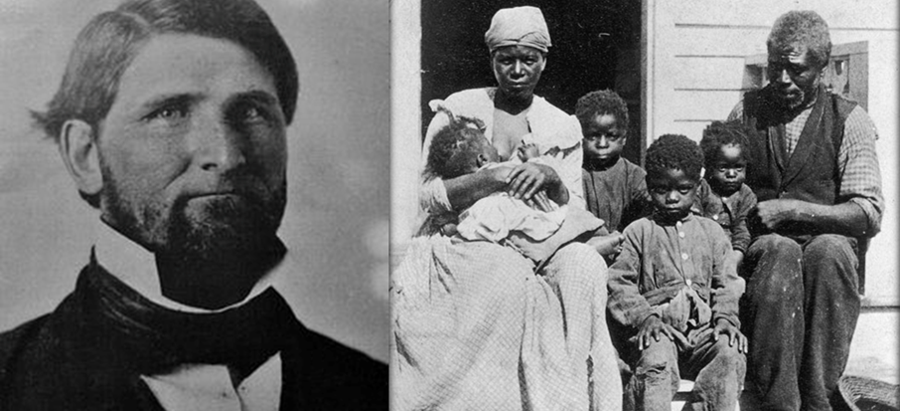Can the Cross overcome the #hashtag?
In preparation for Sunday’s sermon from Psalm 148 and the unity to which biblical worship drives us – kings and all people, young and old together, I have been thinking about identity, and in particular identity politics* and how at its best it calls us to own and to celebrate who we are, even our God-given who-we-are-ness, and how at its worst it divides, antagonizes, separates, and destroys those things that best hold us together – family, community, country, and, yes, church.
I am who I am. My identity comes from a hodgepodge of nature and nurture, history and circumstance, serendipitous encounter and life-changing event. God has taken this stew of life and used it, graciously, to mold and make me who I am. I have an identity which is layers deep, years wide, and not yet complete.
A piece of my identity has to do with my family; the home in which I was raised, and generations of homes stretching back to obscurity.
A few months ago, I came across some genealogy work done by a Teague cousin. In the research done are stories I’d never heard and some which make clear things my father used to tell us.
A little bit of the story of my great-great grandfather is told in that stack of photocopied papers my cousin collected. John Williams Teague was known around the little town of Fourmile, Alabama, as “Deacon Teague.” Deacon Teague died in 1858. The eulogy spoken at his funeral at Fourmile Baptist Church read in part:
He was considered by all who knew him as an example of Christian piety and from the time he embarked in the cause of the gracious redeemer he remained an unsullied Christian character. The theme upon which his soul feasted almost all his life was: By grace ye are saved, through faith, and not that of yourselves; It is the gift of God. Not of works, lest any man should boast.
Deacon Teague was grandfather to my grandfather, and I wonder how the Christian piety of Deacon Teague may have touched the lives of his son and grandson (who he never met), and maybe even the life of his grandson’s grandson.
But there was something else about Deacon Teague that caught my eye. By right of law Deacon Teague owned other human beings. When his father died, the last will and testament read in part, “I bequest to my well beloved wife Elizabeth…the four eldest Negroes now in my possession, viz: Samson, Bess, Jos, and Makiah, with their increase forever…I bequest to my son John two Negro girls named Leah and Phyllis and one brown bay colt, his saddle and bridle and a cow and a calf.”
How did Deacon Teague’s slave-owning touch the life of his grandson, and how does it touch the life of his grandson’s grandson? I would be foolish to say it touches my life not a bit.
For sure, the lives of the great-great grandchildren of Samson, Bess, Jos, Makiah, Leah and Phyllis (with their increase forever) have been touched by Deacon Teague and his father owning other human beings by right of law.
For all its destructive influence, and, frankly, its silliness and stupidity, identity politics calls us to ask questions we should not quickly dismiss.
What about Deacon Teague, his piety and his slave-owning? I will never have a full answer and will only slowly come to a partial answer of how his life touches mine.
The beginning of an answer came yesterday when my good friend Luke, pastor of the Baptist church up the street, stopped by to talk. As we do, Luke and I talked about our lives and the life of a pastor – sermons to preach and issues to attend. And then I told Luke about my great-great grandfather, the Baptist who they called Deacon Teague. Luke and I have Baptist blood in common. I also told Luke that my great-great grandfather could have, by right of law, owned his great-great grandfather Samson or great-great grandmother Makiah.
Luke and I talked some more, a lot more – a Baptist pastor who is the great-great grandson of enslaved persons and a Presbyterian pastor who is the great-great grandson of a deacon in the Baptist church who thought he had a right by law to own other human beings.
Luke and I will talk some more, we always do. Only slowly will we come to the best answers as to how the lives of our great-great grandparents touch our lives.
For now I give thanks that despite whatever Deacon Teague may have thought, Luke and I are brothers in Christ, colleagues in ministry, and really good friends.
See you Sunday
*This from a Vox article provides a good summary of the meaning of the term: “Identity politics” is a very vague phrase, but it generally refers to the discussion of and politicking around issues pertaining to one’s, well, identity. The focus typically falls on women, racial minorities, immigrants, LGBTQ people, and religious minorities, such as Muslim Americans. All the social issues you may have heard of in the past several years — same-sex marriage, police shootings of unarmed black men, trans people in bathrooms, the fluidity of gender, discussions about rape culture, campus battles about safe spaces and trigger warnings — are typically the kinds of issues people mean when they refer to identity politics.

